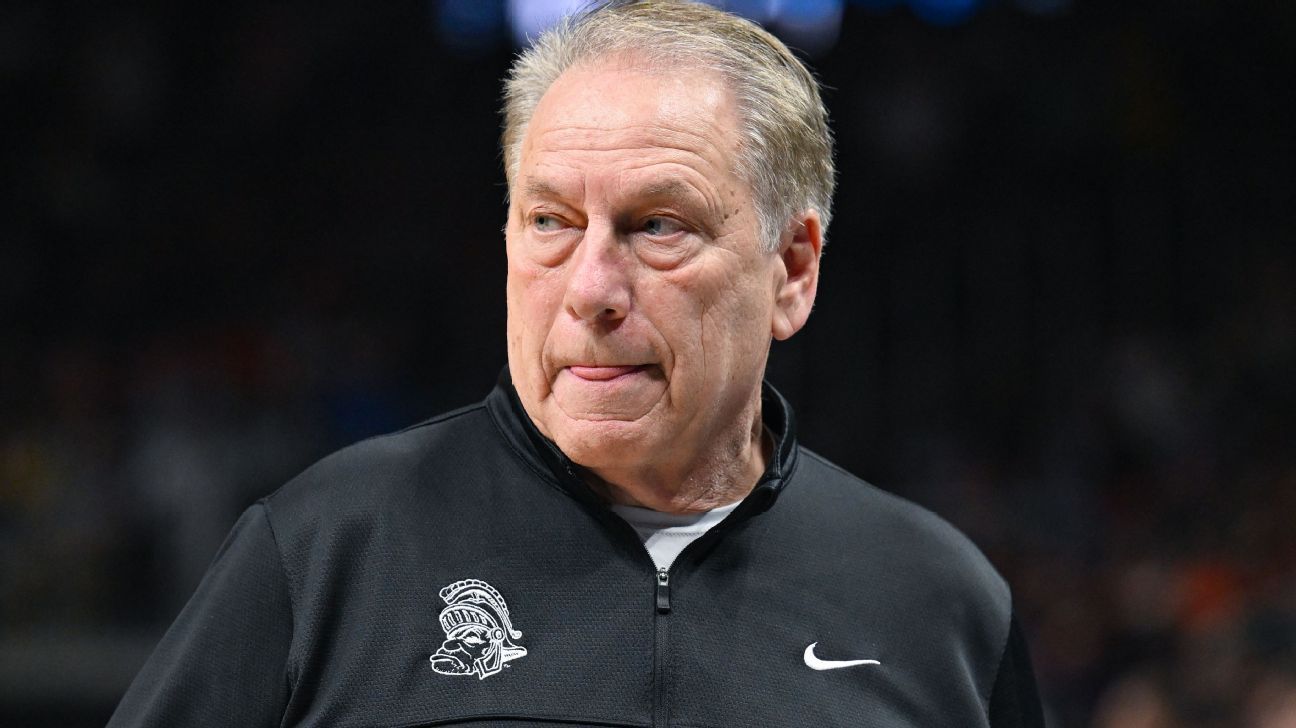Top Stories
Izzo Slams NCAA’s ‘Ridiculous’ G League Eligibility Changes

BREAKING: Michigan State coach Tom Izzo has launched a fierce critique of the NCAA following new rulings that permit former G League players to join Division I programs. In a press conference on Tuesday, Izzo expressed his discontent, stating he does not “respect” the decision-makers behind these changes that could reshape college basketball.
Izzo’s comments come after London Johnson, a former four-star recruit with an average of 7.6 points per game in three seasons with the G League, committed to Louisville earlier this week. Just last month, Thierry Darlan, another G League talent, announced his commitment to Santa Clara. These moves challenge the NCAA’s traditional amateurism rules, which previously barred players who had earned money in professional leagues from competing in college.
The NCAA’s Division I manual explicitly states that athletes compensated as professionals beyond “actual and necessary expenses” cannot participate in college basketball. This includes provisions for health insurance, meals, lodging, and transportation. However, recent decisions have blurred these lines, particularly for international players.
Izzo voiced his frustration, declaring, “This was sprung on us again yesterday,” emphasizing that many in the collegiate community were caught off guard by the changes. He criticized the NCAA for operating without consultation, suggesting that fear of legal repercussions is driving their decisions. “I’m not real excited about the NCAA or whoever is making these decisions,” he said.
The implications of this ruling could be profound. Izzo warned that the influx of older, experienced players from the G League could jeopardize the prospects of high school seniors seeking scholarships. “What about the freshmen you recruited there?” Izzo asked. “That’s somebody’s son, and all of a sudden, shazam, they pull out a 21- or 22-year-old from the G League.” He labeled this potential shift as “ridiculous” and “embarrassing.”
The NCAA’s recent flexibility in allowing international players to compete raises further questions about the future of college athletics. Darlan, who played with the NBA Academy Africa program, was the first G League player to receive eligibility for college basketball. Johnson’s commitment marks a significant turning point, reflecting a growing trend that Izzo fears could destabilize college basketball.
“The NCAA has got to regroup. They’ve got to regroup,” Izzo stated, challenging the organization to consider the “unintended consequences” of their recent rulings.
As college basketball navigates these changes, the landscape of recruitment and player eligibility is rapidly evolving. Izzo’s call to action highlights a pressing need for dialogue between the NCAA and collegiate programs to address these controversial rulings and their effects on young athletes striving for a fair opportunity.
Stay tuned for updates as this story develops, particularly how schools and the NCAA respond to the growing concerns voiced by coaches like Izzo. The future of college basketball could be at a pivotal crossroads.
-

 Science1 week ago
Science1 week agoResearchers Challenge 200-Year-Old Physics Principle with Atomic Engines
-

 Politics7 days ago
Politics7 days agoNHP Foundation Secures Land for 158 Affordable Apartments in Denver
-

 Health1 week ago
Health1 week agoNeuroscientist Advocates for Flag Football Until Age 14
-

 Lifestyle1 week ago
Lifestyle1 week agoLongtime Friends Face Heartbreak After Loss and Isolation
-

 World1 week ago
World1 week agoTroops to Enjoy Buffalo Chicken, Thai Curry in 2026 MREs
-

 Health7 days ago
Health7 days agoFDA Launches Fast-Track Review for Nine Innovative Therapies
-

 Top Stories1 week ago
Top Stories1 week agoUnforgettable Moments: The Best Victoria’s Secret Performances
-

 World1 week ago
World1 week agoGlobal Military Spending: Air Forces Ranked by Budget and Capability
-

 Business1 week ago
Business1 week agoMaine Housing Inventory Surges to Post-Pandemic High
-

 Politics1 week ago
Politics1 week agoIsraeli Air Strikes in Lebanon Kill One, Wound Seven Amid Tensions
-

 Lifestyle1 week ago
Lifestyle1 week agoJump for a Cause: San Clemente Pier Hosts Fundraiser Event
-

 Politics1 week ago
Politics1 week agoMassachusetts Lawmakers Resist Audit After Voter Mandate









